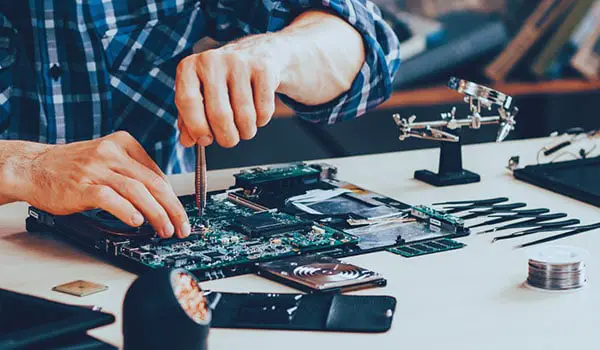
When your PC runs resource-intensive tasks like gaming, video editing, or other demanding applications, the CPU and GPU will heat up. Fans will run at higher speeds to dissipate this heat, producing more noise.
If you’ve overclocked your CPU, GPU, or RAM, the increased performance can lead to higher temperatures and, consequently, louder fan noise. Most of the time, the louder sound reason is the overclocking! Dust can also make fan blades unbalanced, producing more noise. To make your Laptop/PC quieter, I will teach you a step-by-step guide. Follow me!
How To Make PC Quieter? (Guides)
A loud PC sound can indicate potential health or performance issues with the computer, but it isn’t always guaranteed. Making your PC quieter involves addressing various sources of noise. Here’s a detailed guide on how to achieve a quieter PC:
1. Case Fans
Upgrade to Quieter Fans! Look for fans that advertise quiet operation. They provide a dB (decibel) rating, with lower numbers indicating quieter operation.
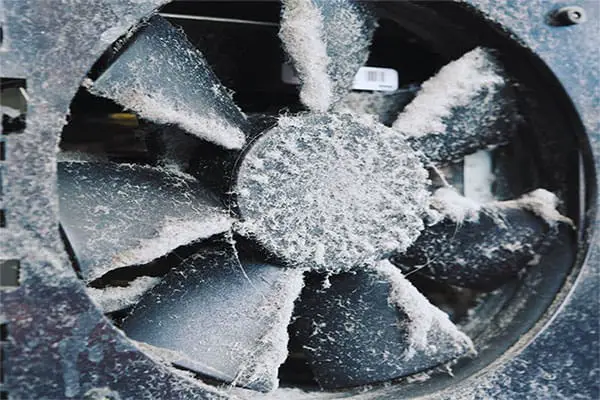
Adjust Fan Speeds: Using motherboard software, BIOS settings, or dedicated fan controllers, reduce the speed of your fans. Remember, slower fans are generally quieter, but ensure your components receive adequate cooling.
Increase Fan Size: Larger fans (e.g., 140mm vs. 120mm) can move the same air as smaller fans but at a slower, quieter speed.
2. CPU Coolers
Upgrade to a Premium Air Cooler: High-quality air coolers are quieter and more efficient than stock coolers. Look for coolers with larger, slow-turning fans.
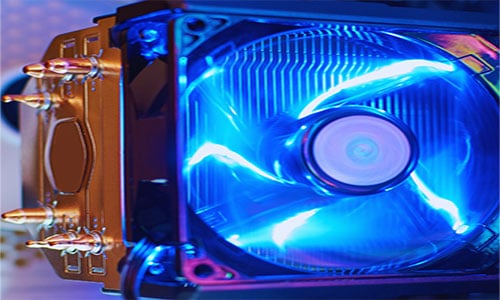
Consider Liquid Cooling: All-in-one liquid coolers can be quieter than air coolers, especially under load. They can dissipate more heat with slower fan speeds.
3. Power Supply Unit (PSU)
Opt for a Higher Quality PSU: Premium PSUs have better build quality and have quieter fans. They also have higher efficiency ratings (like 80 PLUS Gold or Platinum), producing less heat and requiring less cooling.
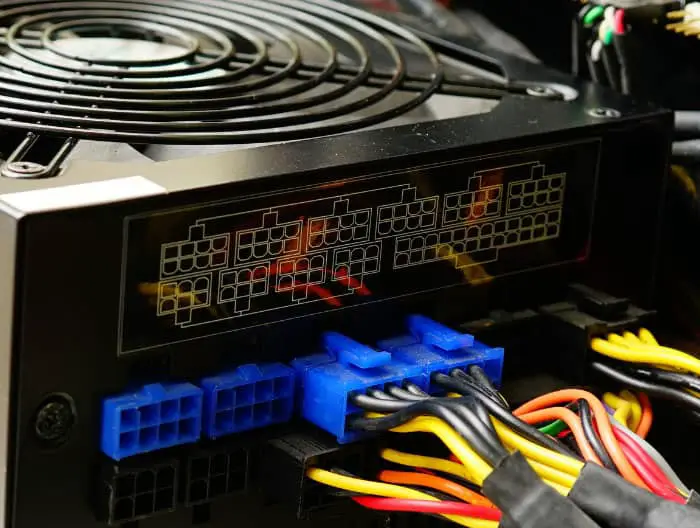
Fanless PSUs: PSUs are available that operate without fans, producing no noise. Ensure the rest of your system can handle the additional heat.
4. Graphics Card
Aftermarket Coolers: If you’re comfortable, you can replace the stock cooler on your GPU with a quieter and more efficient aftermarket solution.
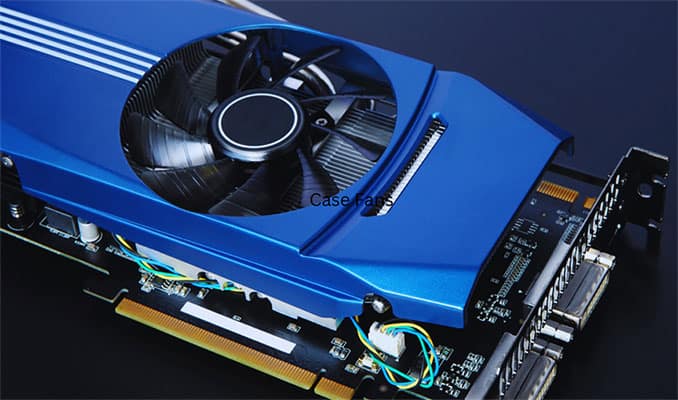
Adjust Fan Curves: Using software utilities, you can customize when and how the GPU fans ramp up or down based on temperature.
5. Hard Drives
Shift to SSDs: Solid State Drives (SSDs) have no moving parts and are silent. Replacing mechanical hard drives with SSDs will reduce noise.
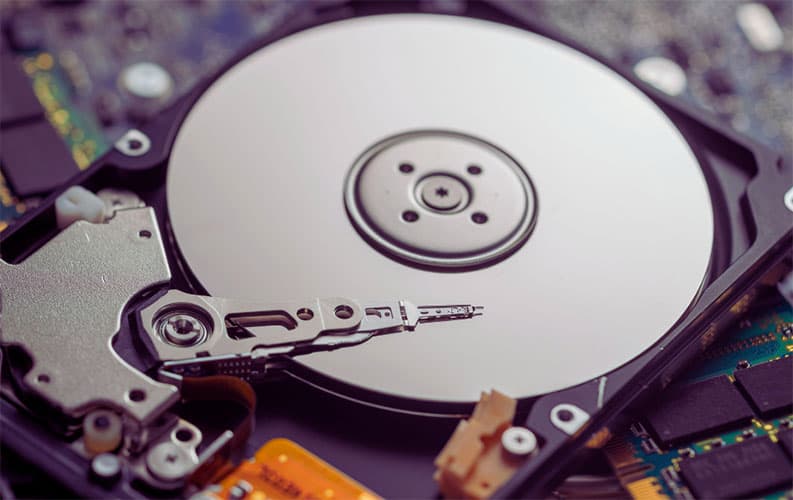
HDD Dampening: If you still use mechanical hard drives, consider using anti-vibration mounts or enclosures to dampen the noise.
6. Case and Insulation
Sound Dampening Material: Add soundproofing mats or foam to the inner side panels and front of your PC case. These materials can absorb and reduce noise emanating from your PC.
Opt for Cases Designed for Silence: Some cases are specially designed to be quiet with features like sound-dampening panels, sealed front panels, and integrated fan controllers.
7. Vibration Dampening
Anti-Vibration Pads: Use these pads under your PC and between fans and the case to reduce vibrations, which can lead to noise.
HDD and PSU Anti-Vibration Mounts: These specialized mounts reduce the transfer of vibrations from hard drives and PSUs to the PC chassis.
8. Regular Maintenance
Clean Components: Dust and dirt can make fans noisier and less efficient. Periodically clean out your PC using compressed air. Ensure fans, heat sinks, and vents are free of dust.
9. Ambient Environment
PC Placement: Elevating your PC off the ground can reduce the dust it takes. Additionally, placing your PC inside a desk cubby or using a partition can help block some of the noise (but ensure it has adequate ventilation).
Room Acoustics: Soft materials in a room (like curtains, carpet, or wall foam) can absorb sound, making the overall environment quieter.
Monitor temperatures to ensure that you’re not compromising on cooling. Overheating can reduce component lifespan and affect performance. Always strive for a balance between noise reduction and efficient cooling.
How to make PC quieter when playing games?
When playing games, your PC can get loud due to the increased demand for the CPU, GPU, and other components. This increases temperatures, causing fans to ramp up and produce more noise. To achieve a quieter gaming experience, consider the following steps:
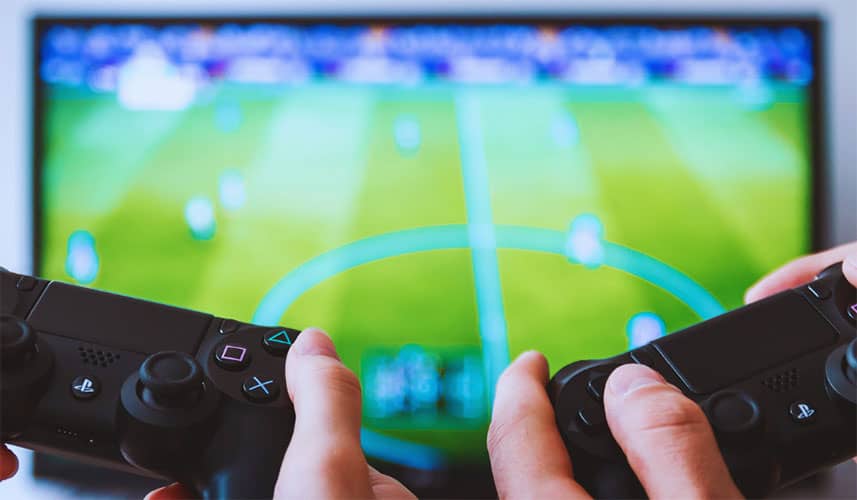
Optimize Game Settings:
Reduce Graphics Settings: Lowering some in-game settings can reduce the load on your GPU. Consider decreasing settings like shadow quality, anti-aliasing, or texture quality.
Limit Frame Rate: Instead of letting your GPU produce as many frames as possible, cap the frame rate to your monitor’s refresh rate (e.g., 60, 144, or 240 FPS).
Graphics Card (GPU) Cooling:
Adjust Fan Curves: Customize the fan curve to balance cooling and noise using GPU management software (like MSI Afterburner).
Upgrade GPU Cooler: Aftermarket GPU coolers can provide better cooling with less noise.
Liquid Cooling: For those who are more adventurous, consider a GPU liquid cooling solution. This can significantly reduce noise, especially under heavy loads.
Improved Airflow:
Rearrange Internal Components: Ensure that cables are organized and not obstructing airflow.
Add or Upgrade Case Fans: Consider using larger, high-quality fans. They can move the same air at a lower RPM (and therefore noise) than smaller fans.
Case Considerations:
Sound Dampening: Some cases come with sound-dampening materials. If yours doesn’t, you can add aftermarket soundproofing mats or foams.
Upgrade Your Case: Invest in a case designed for quiet operation, with features like sound-dampening panels and sealed front doors.
Positioning: Ensure the PC case is placed in an area with good ventilation, reducing the need for fans to work harder. Also, placing it on a solid surface instead of a carpet can reduce noise.
CPU Cooling:
Upgrade the CPU Cooler: A high-quality aftermarket air cooler or an all-in-one liquid cooler can be quieter and more efficient than stock coolers.
Adjust CPU Fan Curve: Like the GPU, use software or BIOS settings to customize the CPU fan curve.
Hard Drive Noise:
SSDs Over HDDs: SSDs are silent, whereas HDDs have moving parts. If possible, shift game installations to an SSD.
Anti-Vibration Mounts: If using HDDs, anti-vibration mounts can reduce noise from the hard drive’s mechanical movements.
Power Supply Unit (PSU):
Upgrade to a Quieter PSU: A high-quality PSU can operate more quietly. Some even have fanless modes under low loads.
Ensure Adequate Ventilation: Ensure the PSU isn’t suffocated and has ample airflow.
Vibration Dampening:
Feet and Pads: Anti-vibration pads or rubber feet for your case can prevent vibrations from causing additional noise.
Regular Maintenance:
Clean the Components: Dust can cause components to heat up faster and fans to become noisier. Periodically clean out the dust using compressed air.
External Solutions:
Headphones: Good quality headphones can isolate you from the noise of the PC.
Acoustic Panels: If you’re dedicated, you can treat your room with acoustic panels to absorb some noise.
How to lower fan speed on PC?
Lowering the fan speed on your PC can reduce noise but strike a balance to ensure that components don’t overheat. Here are methods to lower fan speed:
BIOS/UEFI Settings:
Restart your PC: Press the key to enter the BIOS/UEFI settings as your computer starts up. Common keys are Del, F2, F10, or Esc, but it varies by motherboard.
Locate the Hardware Monitor or Fan Control Section: This section will display temperatures and fan speeds.
Adjust Fan Speeds: Here, you can typically choose between “Auto,” “PWM” (pulse-width modulation), or “DC” (direct current) modes or set a custom fan curve. Adjust as desired, but be cautious not to set them too low.
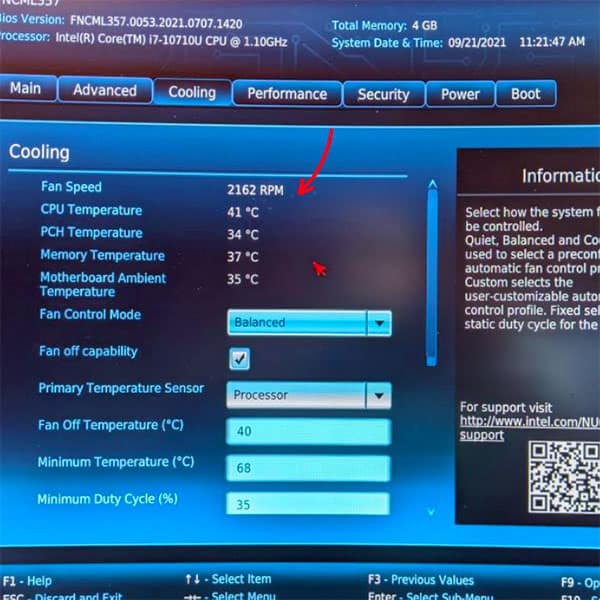
Some BIOS versions offer predefined profiles like “Silent”, “Standard”, “Turbo”, etc. Selecting “Silent” or a similar option will make the fans quieter at reduced cooling costs.
Advanced BIOS interfaces allow users to set custom fan curves. This means you can specify the fan speed (%) for each temperature threshold. By setting a more conservative curve, you can achieve quieter fan operation. However, ensure your system remains cool enough to prevent overheating.
After making the necessary changes, navigate to the “Save & Exit” option in the BIOS, usually found in the main menu or the last tab. This action will save your settings and restart the computer.
Manufacturer Software:
Motherboard Utilities: Most motherboard manufacturers provide software that allows you to control fan speeds from within Windows. Examples include ASUS AI Suite, MSI Dragon Center, and Gigabyte SIV (System Information Viewer).
Graphics Card Software: If you want to control the fan speed of your GPU, software like NVIDIA Control Panel, AMD Radeon Settings, or MSI Afterburner can help.
Third-Party Software:
SpeedFan: This popular utility can adjust fan speeds for many motherboards and supports CPU and chassis fans.
Argus Monitor: Offers advanced fan control capabilities and supports many modern motherboards.
Physical Fan Controllers:
These are panels or knobs that fit in a drive bay or an empty slot in the PC case and are connected to the fans directly. They allow you to adjust the fan speed without software intervention.
Ensure Good Airflow:
Sometimes, fans run at higher speeds because of poor airflow. Reorganizing cables and ensuring clear airflow paths can help components stay cooler, meaning fans don’t need to work as hard.
Consider Fan Replacement:
If adjusting fan speeds doesn’t lead to a quieter experience, or if you’re worried about cooling efficiency, consider upgrading to fans specifically designed for quiet operation.
Check for Fan Faults:
It might be faulty if a fan is unusually loud or doesn’t adjust its speed according to settings. In such cases, replace your fan.
How to make Laptop quieter?
If your laptop is noisy, it’s likely due to either fan noise, a hard drive working, or coil whine from internal components. Here are some steps you can take to make your laptop quieter:
Clean Out Dust:
Dust buildup can cause your laptop to overheat, which in turn can cause the fans to run at a higher speed. Use compressed air to blow out dust from the vents. Do this with the laptop turned off.
Use a Cooling Pad:
Elevating and improving airflow beneath the laptop with a cooling pad can reduce the need for the laptop’s internal fans to work so hard, thus reducing noise.
Optimize Power Settings:
On Windows: Go to “Power Options” and select a power plan like “Power Saver” which reduces the performance slightly to keep the machine cooler.
On macOS: Navigate to “Energy Saver” in System Preferences.
Close Unnecessary Programs:
Too many programs running simultaneously can strain the CPU, causing it to heat up and the fans to speed up. Close programs you’re not using, and check the task manager (Windows) or Activity Monitor (Mac) to see if any background processes are using a significant amount of resources.
Update Drivers and Firmware:
Sometimes, noise issues can be software-related. Make sure all your drivers are updated, especially graphics and chipset drivers. Also, check for any BIOS or firmware updates from the laptop manufacturer.
Replace the Hard Drive with an SSD:
Consider replacing the noise with an SSD if the noise comes from a mechanical hard drive. SSDs are silent and can also significantly speed up your laptop.
Control Fan Speed:
Some laptops allow you to control fan speeds using third-party software like “NoteBook FanControl.” However, be cautious when using these tools, as reducing fan speed can lead to overheating.
Check for Malware:
Malware can cause excessive CPU usage, leading to increased fan noise. Run a complete malware scan to rule out this possibility.
Consider External Factors:
Make sure the environment where you use the laptop is cool and well-ventilated. Also, placing the laptop on a hard surface (like a desk) rather than a soft one (like a bed) can help with ventilation.
Laptop Placement:
Don’t block the vents. Ensure the laptop’s intake and exhaust vents are unobstructed to maintain optimal airflow.
Hardware Issues:
If the laptop is still noisy after these steps, maybe there’s a hardware issue. Fans can become faulty, or there may be other components causing noise. Consider taking your laptop to a professional for a checkup.
Why is your PC so loud?
A loud PC can be due to several reasons, from hardware issues to accumulated dust. Here’s a list of common causes for a noisy PC:
Dusty Fans and Components: Over time, dust accumulates on fan blades, heatsinks, and other components, making fans work harder and potentially causing them to become noisier. Dust can also cause an imbalance in fan blades, increasing noise.
Fan Issues:
Worn Out or Failing Fans: As fans age or become faulty, they produce more noise due to wear in their bearings.
Fan Speeds: Some motherboards or software settings are set to run fans at high speeds, either constantly or prematurely.
Cheap Fans: Lower-quality fans are noisier than their premium counterparts.
Hardware Running Hot:
- When components (like the CPU, GPU, or PSU) become hot, their fans automatically ramp up speed to cool them down, producing more noise. This could be due to intense tasks, inadequate cooling, or a failing component.
- Overclocking components can also generate more heat, causing fans to work harder.
Hard Drive Noise:
- Mechanical hard drives have moving parts, and over time, they can become noisier, especially if they are beginning to fail. Regular hard drive activity can produce a clicking or whirring noise.
- Optical Drive: If you have a CD/DVD in the optical drive and it’s spinning, it can produce significant noise.
Vibrations: Loose components, screws, or hard drives can vibrate, causing noise. These vibrations can be amplified if transferred to the PC case.
Power Supply Unit (PSU):
An aging or failing PSU fan can become noisy.
A PSU under high load or one that’s not efficient can run its fan at higher speeds.
Graphics Card: High-performance GPUs can get loud when under load, especially during gaming or other graphic-intensive tasks.
Poor Case Acoustics: Some PC cases are better at dampening noise than others. A thin or cheaply made case might not do a good job of reducing internal noise.
Software and Background Processes: If unexpected software or malware runs in the background, it can load the system, causing fans to ramp up.
Bearing Noise: Some fans use sleeve bearings, which, over time, can become noisy when worn out. Others, like fluid or magnetic bearings, are quieter and last longer.
Loose or Damaged Cables: Cables touching fan blades can produce a consistent ticking or scraping sound.
What to Do? (Solution)
Clean the PC: Regularly clean out dust from the PC using compressed air. Ensure fans, vents, and heatsinks are clean.
Check Temperatures: Monitor the temperatures of your CPU, GPU, and other components to see if overheating is causing fans to ramp up.
Replace Noisy or Failing Fans: If a particular fan is causing excessive noise, consider replacing it.
Check for Software Issues: Ensure no unwanted software or malware is causing unnecessary load on your PC.
Inspect All Components: Ensure everything is tightly screwed in and cables are properly managed, away from fan blades.
Upgrade or Add Fans: Consider adding or upgrading to quieter, more efficient fans.
Consider Sound Dampening: Look into sound-dampening materials or a quieter case design.
If you’ve tried these steps and the noise persists, consult a PC technician or expert to identify and rectify any underlying issues.
Learn more:
How To Clean GPU Fans Properly?
How To Clean Thermal Paste Off CPU?
What Is CPU Package Temp And How To Check It?
What Is Artifacting GPU And How To Fix It?
How Does Overclocking Reduce GPU Lifespan?
How To Ground Yourself When Building A PC?
Table of Contents

